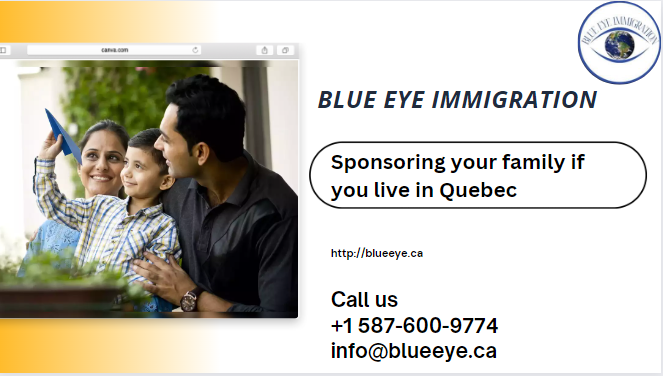The family class welcomes the second largest number of newcomers to Canada under its Immigration Levels Plan. It allows a family member of a Canadian citizen or permanent resident to be reunited with their family and come to Canada and receive permanent residence.
Quebec has a unique status in Canada, meaning that it has some specific steps and requirements unique to the province that you must accomplish or meet before being able to sponsor a family member.
Sponsoring your spouse
Canadian citizens and permanent residents who are married or partner law relationship with a foreign national may sponsor that person to join them in Canada.
In order to sponsor your spouse or partner, you must:
- At least 18 years of age;
- Be a Canadian permanent resident living in Canada or a Canadian citizen;
- Not be in prison, bankrupt, under a removal order (if a permanent resident) or charged with a serious offence; and
- Not have been sponsored to Canada as a spouse within the last 5 years.
The sponsor and the sponsored person must also prove their relationship, which must be one of the three following categories:
- spouse: the sponsored person and sponsor are legally married.
- common law partner: the sponsored person and sponsor must cohabit continuously for at least one year.
- conjugal partner: a sponsored person may be defined as a conjugal partner if exceptional circumstances beyond their control has prevented the partners from qualifying as common law partners or spouses.
Quebec has its own criteria for spousal sponsorship and a distinct undertaking application. When applying, a sponsor will need to submit the application to Immigration, Refugees and Citizenship Canada (IRCC) and to the Ministry of Immigration, Francization and Integration (MIFI).
The MIFI considers the following:
- the financial criteria for sponsoring immigrants intending to live in Quebec;
- If the sponsor is on social assistance;
- if the sponsor is in default of a previous Quebec undertaking or support payments;
- the duration of the commitment;
- an undischarged bankruptcy.
If the sponsorship application is approved, the person being sponsored will receive a Quebec Selection Certificate (CSQ), which declares that the person has been selected to settle in Quebec. Only then can they apply to IRCC for permanent residence.
Sponsor your dependent child
Canadian citizens and permanent residents can bring their child to Canada from abroad to become permanent residents.
To sponsor your child, you must;
- be 18 years of age or older;
- be a Canadian citizen, a permanent resident living in Canada, intending to return to Canada, or a person registered under the Indian Act of Canada;
- be able to provide for your basic needs and those of your dependent children;
- be able to prove your relationship to your child;
- not have a criminal record or be in prison, not charged with a serious offence, or bankrupt;
- not be in default of a previous sponsorship undertaking;
- not be under immigration investigation;
- not be receiving income assistance, except for reasons of disability.
The dependent child, to be eligible for sponsorship, must be a biological or adopted child of a permanent resident or Canadian citizen, be under the age of 22 and not be married or in a common-law relationship.
As a sponsor, you are required to sign an undertaking that means you will provide for the basic needs of your child, including housing, clothing, food, and medical expenses. In Quebec, you must sign the undertaking with the province. In addition, the duration of the undertaking is different in Quebec than in the rest of Canada.
Once again, if the sponsor is residing in Quebec, they will need to apply for a CSQ. In addition, they will need to submit the application to IRCC and to MIFI.
Sponsoring your parents or grandparents
Canadian citizens and permanent residents are able to sponsor their parents and grandparents to immigrate to Canada and become permanent residents. They even may eventually be able to apply for Canadian citizenship.
In order to sponsor your parent or grandparent, you must:
- be a Canadian citizen, permanent resident of Canada, or a registered Indian under the Canadian Indian Act;
- be 18 years of age or older;
- be residing in Canada
- exceed the minimum necessary income level for this program and provide proof of income to IRCC; and
- sign an undertaking to financially support the sponsored for 20 years (starting when they become permanent residents) and to repay any social assistance benefits paid to the sponsored family members (if applicable) for a period of 20 years.
An additional undertaking must be signed with the province of Quebec. You are deemed fully capable of fulfilling a sponsorship undertaking in Quebec if you have a gross income that is equal to the total amount of income in these tables.
Once again, if the sponsor is residing in Quebec, they will need to apply for a CSQ. Once it is obtained, it can be submitted to IRCC.
The Parents and Grandparents program is currently closed. The last PGP lottery was held in October of 2022, but IRCC has released no information about whether the PGP will reopen in 2023.
Another option for those looking to sponsor their parent or grandparent is through the Super Visa. The Super Visa allows parents and grandparents of Canadian citizens and permanent residents to come to Canada as visitors for up to five years without having to renew their status. It is a multi-entry visitor visa that is valid for up to 10 years.
The Super Visa is available all year round. There is no lottery to get a Super Visa, offering greater certainty to families. The Super Visa provides parents and grandparents more time in Canada and does not require renewal upon re-entry into the country until the validity period has passed.
